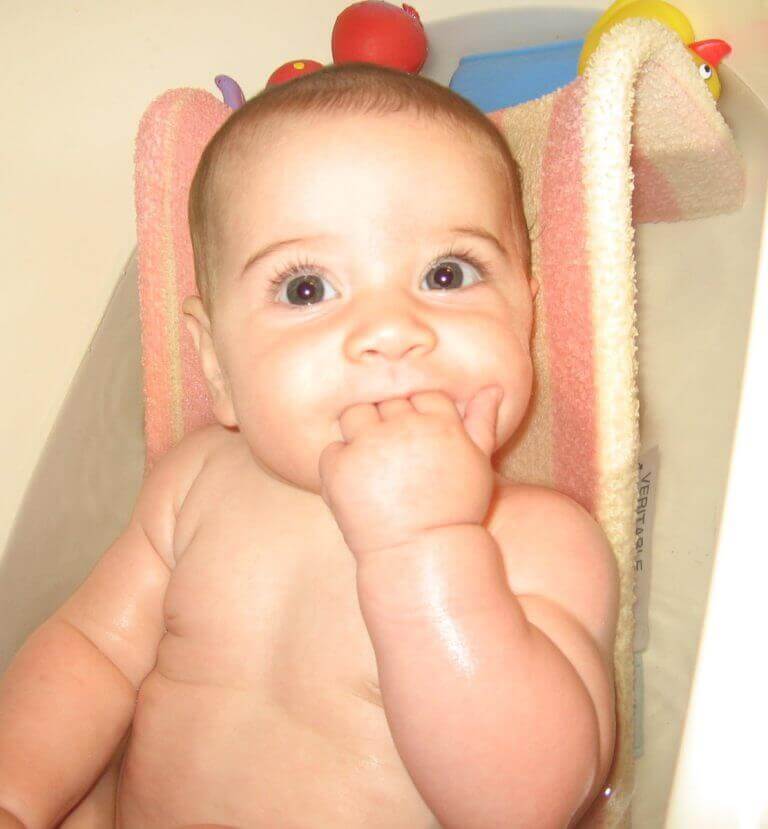
Beyfortus (Nirsevimab) for the prevention of hospitalizations in babies due to RSV – a scientific article
An important article that was published in the end of 2023 in the best clinical journal in the world (NEJM), link here.
The article studied the efficacy of a new passive vaccine called Nirsevimab (trade name Beyfortus), in the prevention of hospitalizations as a result of a virus that causes high morbidity, especially in newborn babies, during their first winter season.
Before I summarize the article for you, I would like to point out several posts on this website involving this topic.
1. Winter infections in children – where it all starts. What is bronchiolitis? This is pretty basic and a must-know for everyone. Follow the link here.
2. What is RSV? – what can it cause in children? How is it diagnosed? How is it treated? Follow the link here.
3. Beyfortus vaccine – what is this new vaccine for? How is it administered? What is it supposed to prevent? Link here.
Keep in mind that this part of the website is here to give you, the parents, access to important articles, that were published in the heart of pediatric medical journals.
Lets get started.
Methods – healthy babies, under the age of 1, born after the 29th gestational week in France, Germany and England and before their first winter season in their country, participated in this trial. Note that most of the babies that participated were not preterm babies (born prior to 36 gestational week), despite preterm babies born any time after the 29th week being allowed to take part.
Half of the participants received an injection (the passive vaccine), and the other half did not. The authors then compared several parameters among the two groups including hospitalization due to RSV infection in the experimental group (those vaccinated) compared to the control group (unvaccinated).
What were the results of the trial? Does Beyfortus prevent hospitalization of healthy children under the age of 1?
There were 8508 infants who participated in the trial: 4037 received the vaccine (experimental group) and 4021 did not (control group).
In the experimental group, 11 infants were hospitalized due to RSV (0.3%) compared to 60 infants in the control group. The differences between the two groups were statistically significant and demonstrated an 83% efficacy against hospitalization. There were, obviously, differences among the different countries but good efficacy was demonstrated in all the countries. When the data was analyzed according to age, weight, gestational age, sex and timing of the vaccine the results were similar.
What about the prevention of severe illness, defined as hospitalization and a need for supplemental oxygen? In the experimental group 5 participants were hospitalized (0.1%) compared to 19 in the control group; that is, 76% efficacy.
Side effects were witnessed in 2.1% of the infants who received the vaccine.
Conclusion? This passive vaccine (which is actually an injection of antibodies, read more about the details of the vaccine here) reduced the prevalence of hospitalization due to RSV infection in healthy children in their first year of life.
This is actually a massive medical outbreak, since the vaccine that existed prior to this one was given in 5 doses (once a month, for 5 months) during the winter season, and was only given to high-risk populations, such as preterm babies or children with heart or lung disease.
What are the limitations of the study?
Just like in any other study, being experienced readers, we must consider the limitations of the study. There are several limitations to this study that should be taken into account:
1. A pharma study – or in other words, this study was supported by the company that “created” the new vaccine. True, this is something that needs to be considered. But bear in mind that often trials for new vaccines and medications can only be carried out with the help and support of big companies.
2. Variable efficacy of the vaccine in different countries – for example, the efficacy of the vaccine in preventing hospitalization was almost 90% in England and “only” 74% in Germany. This shows that the virus behaves differently in different countries and that the criteria for hospitalization possibly vary between countries. On the other hand, this is also a strength of the study, seeing as the efficacy of the vaccine was demonstrated in 3 different countries.
3. An additional point worth considering is that the researchers and parents were aware of who received the vaccine and who didn’t – it would have been best to have the children in the control group receive a placebo injection and to have everyone “blind” to the intervention. However, this would have been ethically and practically challenging to carry out.
Either way, for the first time we now have a single-dose vaccine for children who are healthy, that could prevent significant morbidity of a virus that burdens our health system and affects lots of children worldwide, every year.
Is the vaccine available in your country? Consider giving it to your baby and talk to your family physician to learn more about your options.
For comments and questions, please register
